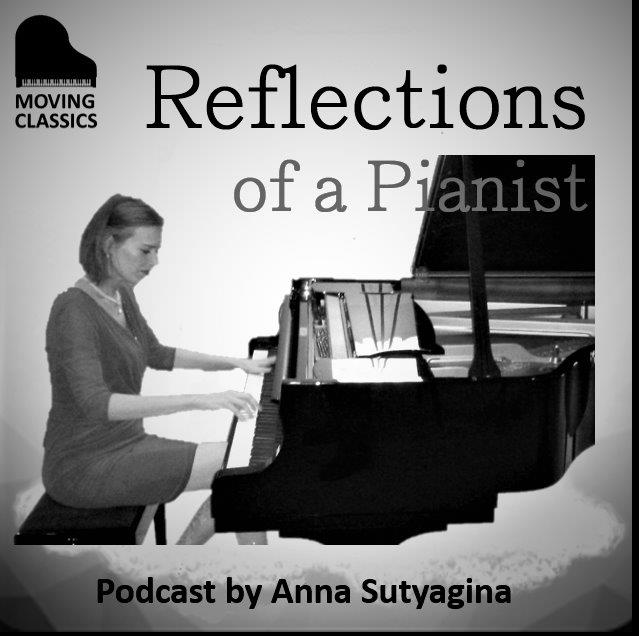
As the founder of MOVING CLASSICS, the Internet channel for modern piano music, I ask myself what my listeners are interested in, and if there are new trends?
In the last years the amount of new piano compositions grew substantially. You can follow this development by listening to various piano playlists in Spotify and Soundcloud. The huge amount of new music raises new questions: what can be considered the quality music, is it art, what is the difference between a real piece of art and the so called commercial but well-composed music? The today’s piano listeners, among them a lot of millennials, ask about the purpose of the music, they want to know what is new and how the new comes into the world.
The composers of today have to consider many factors that are decisive for the success of their music. And similar to different fields, composers are more successful if they rely on a team of experts.
Today I would like to share with you my observations about the results of creativity – a new music creation that appears on the sheet of paper or on the computer screen after long and sleepless nights. Imagine a long journey a new composition has: from the first spark of imagination to a deliberate conscious idea that needs to be put into a shape.
The examples from the music history show different ways of doing it. Wolfgang Amadeus Mozart would write down the finished version in one go, Ludwig van Beethoven would scribble down the motifs that he would be developing and re-working months and years afterwards, Chopin would write down several versions and at the end choose the first. Regardless of personal methods, the work on the musical idea is not finished until it is fixed as music text and can be played and recorded. The challenge for any composer is not to lose initial thoughts when transferring them into some codes of the musical language. The musical notation can be very abstract, and it is open to interpretation.
When I read new music, I am very curious. What is the idea behind this composition? Which creativity codes did a composer use? I play the composition and let the music go through my personality, my technical abilities and my sensitivity. Unrecorded music awakens a pioneer spirit in me. At the same time, it is a responsibility towards a composer. I see performing musicians as a messenger between the musical idea and the audience. The communication is very important, it can be a painstaking process, but it is very enriching experience for any pianist.
I recorded more than 300 modern piano compositions and discussed with almost 300 composers their creations. You can find the recordings and interviews with the composers at the Moving Classics website.
if a composer is a pianist, he or she would know how to write pianistically that fits our fingers well, but it is still not a guarantee that their intentions are notated well and can be easily understood.
I was so lucky to be able to talk to composers directly and to clarify it with them. My experience shows that it is natural to discover small errors, missing information like accidentals or other technical details. In some cases, notation looked more difficult than the actual execution, sometimes the difficulty level of the composition would not be consistent: to give you an example – I played a piece that I would classify as early intermediate level but there was one bar that was extremely difficult. [EH1]
Is it justified? In some cases, the feedback from a pianist about the listening experience and the first impression would improve the structure and the overall quality of the music.
Today only few composers can say that their music is published by the professional publishing houses where experts would check the notation, proofread it and publish it in the best way so that it can be sold and hopefully played and recorded. The reality is that 95% of all music scores on the market are self-published. It means that this role is transferred to the colleagues and friends of a composer who would briefly look into the score and play it through if they have time. I cannot tell you how often I see that some little advice and improvements would make the scores more appealing when browsing through the Musescore or Scribd.
I truly believe that a fresh independent look into the music score and the sufficient time taken would also sharpen new ideas, it will help a composer to find a focus and make the communication of musical ideas more precise. Sometimes just asking if it is really necessary to have this or that can bring overall improvements. Sometimes it is all about technical issues: a new fingering or new markings, different tempo indications, use of pedal or other way of notation. And above all, good critique and good review can give a composer extra motivation and creativity boost.
The new piano music reflects the emotions of our times. Only through quality the high expectations of a fast-growing number of listeners can be met. It is the feature of our time that smart cooperation can be very helpful.
I am offering professional proof playing service to composers. You can find me on the platform fiverr where I describe proof playing service in detail. I offer three different levels of feedback. You could find the links in the description of the podcast or contact me for further questions. Thank you for listening and goodbye.
https://www.fiverr.com/annasutyagina/proofplaying-of-new-piano-compositions
https://www.fiverr.com/annasutyagina/review-your-piano-recording-and-give-you-a-written-feedback